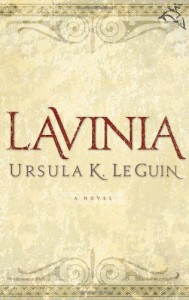

Inspired (as the afterword details) equally by the poetry of the Aeneid and by the ancient Roman religion, this book is an astonishing, exhilarating work on history, ritual, kingship, literature, and more -- kept surprising me, right up to the last page.
Lavinia is a character who in the Aeneid is nothing more than a name and a few entirely clicheed gestures, but in this novel, that gives her the freedom to live her own life in the midst of the story that is told. But actually she is a teller too -- she shapes the story like the poet does, but her language is ritual. She is a perfect match for "pious" Aeneas, and she is if anything more deeply rooted in religion than he is; she has a sense of awe for the great powers in the world, and she appreciates how ritual defines space, time, and relationships, and has the power to actually make things happen.
The history of Rome, in this view, is laid down by destiny or by the powers, and Lavinia and other characters respect that; but actually making this history happen is so to speak a collaborative project between Lavinia and the poet. Le Guin thinks that the tragedy of Aeneas is that he has this sense of religious inevitability too, of the way things must be, but thinks that is not necessarily a good thing -- that the way things must be is often not morally good.
Needless to say the prose is beautiful; worth savoring.










